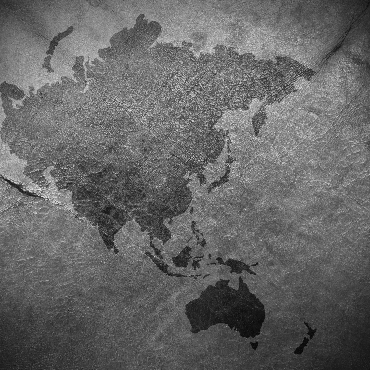CORONAVIRUS NUDGES JAPAN TOWARD RECESSION
To date, most global attention surrounding the new coronavirus, a flu-like epidemic that originated in Wuhan, China, has focused on preventing a pandemic. Even if governments are soon able control the spread of the virus, however, many nations are already suffering economically. For instance, the coronavirus is scuttling Japan's efforts to stimulate its economy after a weak finish last year. In the fourth quarter of 2019, the Japanese economy shrank by 1.6%, mostly as a result of a domestic sales tax increase and fallout from Typhoon Hagibis. In response, the government announced a $120 billion stimulus package in December, but the coronavirus is now disrupting tourism and supply chains throughout Asia. Japan is among the hardest hit, because Chinese tourists represent the single largest contributor to the country's tourism industry, while Wuhan houses several large automobile factories, directly impacting Japanese automakers Nissan and Toyota. (CNN Business, February 17, 2020)
U.S.-PHILIPPINES RELATIONSHIP ON THE ROCKS
Shortly after the United States canceled the visa of Philippine Senator Ronald dela Rosa over his involvement in extrajudicial killings in the island nation, President Rodrigo Duterte announced his intention to end the Visiting Forces Agreement (VFA) with America. The 1951 Mutual Defense Treaty serves as the bedrock of bilateral relations between the two countries, but the VFA is a critical document that protects U.S. personnel engaged in specific authorized activities within the Philippines and sets the conditions that allow the United States to base personnel and equipment there, as well as conduct joint military exercises. Invalidating the VFA would thus not signal an official end to America's military presence in the Philippines, which is codified in the 2014 Enhanced Defense Cooperation Agreement, but it could amount to a de facto conclusion. U.S. Defense Secretary Mark Esper has noted that China is the geopolitical winner of Duterte's decision. The decision does not take effect until the summer, however, potentially giving Washington time to negotiate a resolution with Manila. (USNI News, February 12, 2020)
AUSTRALIAN OFFICIALS CANCEL UK TRIP OVER HUAWEI
In January, the United Kingdom announced its intention to allow Huawei, a Chinese telecommunications company with suspected links to the Chinese Communist Party, to participate in its buildout of 5G telecom. The United States vocally opposed Britain's decision, and warned about adverse impact to intelligence sharing within the "Five Eyes" community that also includes Canada, Australia, and New Zealand. The Australian government banned Huawei from the country's 5G network last year and has since insisted that Britain's effort to mitigate risk while using Huawei equipment is impossible.
The rift within the "Five Eyes" is turning into a diplomatic spat, with senior Australian lawmakers from the country's intelligence and security committee canceling a pending March 2020 trip to the UK. What remains uncertain is the ongoing ability of Washington and Canberra to share sensitive intelligence with London if Huawei is present in Britain's next-generation telecommunications networks. (London Independent, February 15, 2020)
SINGAPORE TARGETS POLITICAL OPPOSITION, MEDIA WITH "FAKE NEWS" LAW
The government of Singapore's enforcement of the Protection from Online Falsehoods and Manipulation Act (POFMA), a new legal authority that subjects publishers of false information with "malicious intent" to fines and incarceration, is targeting the country's political opposition and NGOs. Since October 2019, authorities have targeted the Singapore Democratic Party, human rights organization Lawyers for Liberty, and media outlet The Online Citizen. The government has also asked Facebook to post corrections to online content and even to block certain pages. Communications and Information Minister S Iswaran described the government's focus on political opposition as an "unfortunate coincidence," but nations like Thailand explicitly recognize the political value of Singapore's approach and have modeled their own programs accordingly. (Financial Times, February 3, 2020)
QUARANTINED CHINESE WORKERS DELAY BELT AND ROAD PROJECTS
From the inception of its One Belt, One Road Initiative, the People's Republic of China (PRC) has adopted a model of exporting Chinese labor to service foreign projects. Host countries and local populations often bristle at PRC workers taking jobs they could fill, but the scope of Chinese capital has generally outweighed these concerns. However, the outbreak of coronavirus is beginning to impact Belt and Road projects, primarily due to China's labor model. In Bangladesh, a $2.5 billion power plant and a $1.1 billion road/bridge project are both on hold because of quarantined Chinese workers inside the PRC. Pakistani government officials also expect that several projects within the China-Pakistan Economic Corridor could face delays. (South China Morning Post, February 8, 2020)
Want these sent to your inbox?
Subscribe
